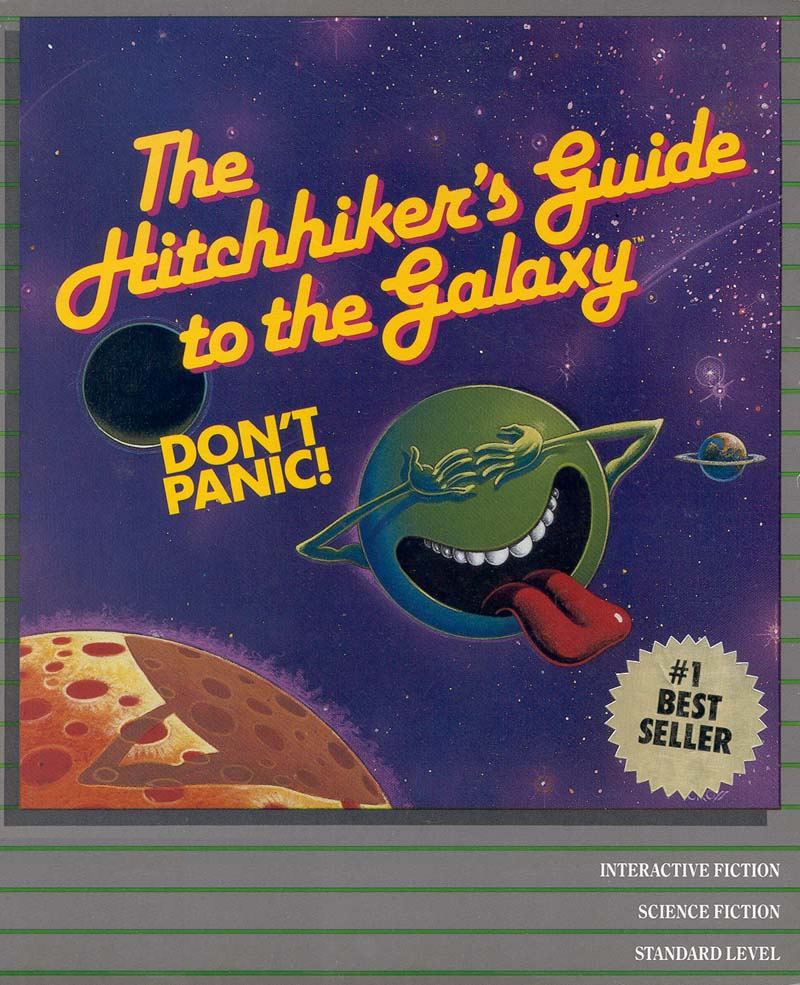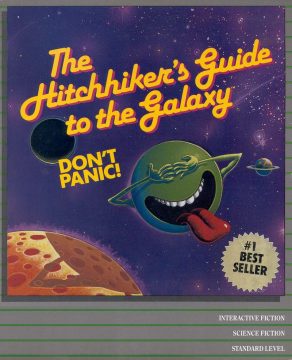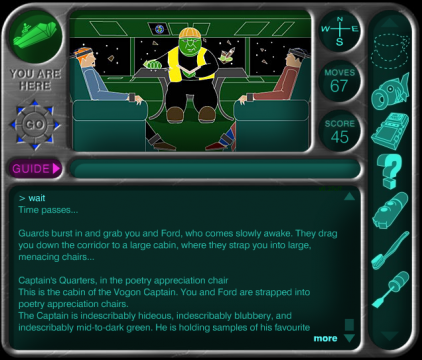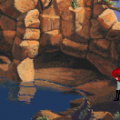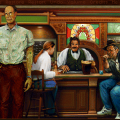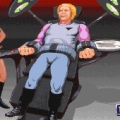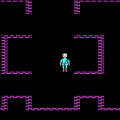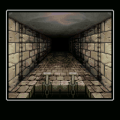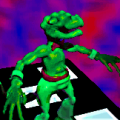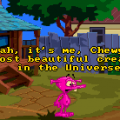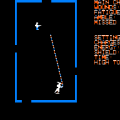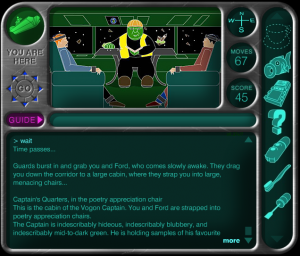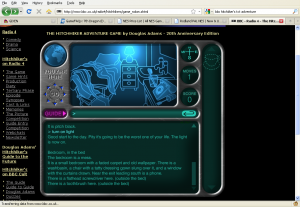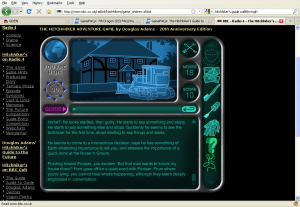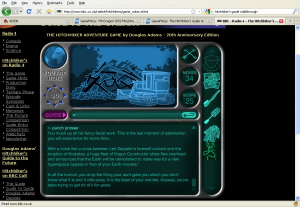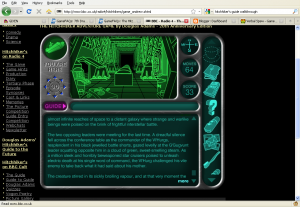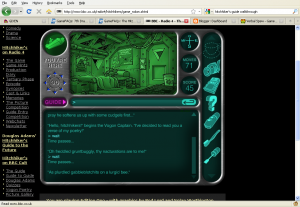Beginning as a radio show in 1978 and eventually evolving into books, television shows and a Hollywood motion picture, The Hitchhiker’s Guide to the Galaxy is one of the most well-known science fiction comedies in the English language. Written by British author Douglas Adams, the story focuses on a hapless everyman named Arthur Dent, who discovers that his friend Ford Prefect is actually an alien and escapes the destruction of Earth at the hands of a band of intergalactic bureaucrats. Their adventures continue as they meet Zaphod Beeblebrox, the two-headed president of the Universe; Trillian, his gal pal, and along with Arthur, one of the only surviving Earthlings; and Marvin, an incredibly intelligent but perpetually morose android. Together they explore the galaxy in the Heart of Gold, a ship powered by the Infinite Improbability Drive, which is more or less an excuse for the story to devolve into ludicrous situations at a moment’s notice.
There are lot of reasons why the series is as well loved as it is, the least of which are the bizarre situations that our heroes find themselves in. Much of it has to do with Douglas Adams’ writing style, which is stupefying brilliant at creating eminently quotable lines, many revolving around dry witticisms regarding the soul-crushing experience that is human existence, mixed with some immensely silly sci-fi technobabble. It also has to do with the eponymous Hitchhiker’s Guide, an electronic device that holds all information in the known universe. It’s basically a prototype to Wikipedia, except written by actual journalists instead of random crazy people. The Guide, at least in the radio and TV series, is essentially the narrator. Regardless of the medium, it also helpfully interjects information about the universe at large, mostly in the form of humorous tangents which may or may not go anywhere. The series has seen numerous permutations across different mediums, and while the setup and characters are the same, each offers a unique experience, with different storylines and such. This allowed for a perfect rationale to adapt the series into a text adventure, released by Infocom in 1984. Developed by wizard Implementor Steve Meretzky, and aided by Douglas Adams himself, the game puts the player in the shoes of Arthur Dent, and makes his insane journey yours.
The story begin as your house is about to be destroyed by a bulldozer. It’s just as well, because the Earth is about to be similarly demolished anyway. After curing yourself of a hangover, the events play out mostly the same as they do in any other adaptation – you stop the bulldozer by lying down in front of it, you meet up with Ford for a few pints down at the local pub, and you escape the destruction of the planet by hitching a ride on the destructor fleet. The aliens blowing up Earth are known as Vogons, and they are none too keen on this. Once they find you, they eventually kick you off, where you’re saved by the Heart of Gold and its crew. From here the story uniquely branches off from the various Hitchhiker adaptations and becomes slightly less restrictive, as you’re no longer attempting to escape from dangerous scenarios.
While attempting to get the Infinite Improbability Drive working, you’ll go through a number of different scenarios, from the perspective of the other characters in random order: as Arthur, you’ll face off against the Ravenous Bugblatter Beast of Traal, a beast so stupid that, if you can’t see it, it assumes that it can’t see you and leaves you alone; as Trillian, you’ll be at a party back on Earth; as Ford, you’ll replay the opening segment from his perspective; as Zaphod, you’ll hijack the Heart of Gold; and again as Arthur, as you emerge in the middle of a tiny intergalactic war. After properly getting the ship working (and getting a decent cup of tea), you’ll eventually end up inside a of sperm whale, which is suspended in the stratosphere and plummeting towards the ground, before finally making it to the end of the game. The story finishes as the group sets foot on the planet of Magrathea, which is about 2/3rds of the way through the first book, and two episodes into the TV and radio series.
The Hitchhiker’s Guide to the Galaxy game is in a weird spot, because very little of that will make any sense to someone who’s not already familiar with it, and many puzzles require at least some foreknowledge of the events. The Guide can be referenced for useful (and, at times, essential) information, though that’s not always enough. But if you follow the book/radio/TV show too literally, you’ll get screwed over with consistency. For example, Hitchhiker fans know that towels are one of the most useful and important items in the universe. When you first meet Ford and he offers you a towel, one would assume that you should take it. But don’t! It’s a trap, because if you do, he’ll decide to walk off, leaving you to die. If you pass this part correctly, you’ll end up on a trip to the pub for a few beers (as a muscle relaxant for the teleportation process), and you’re supposed to buy a cheese sandwich and feed it to the dog outside. If you don’t, it will eat a microscopic meet of invading aliens and screw you up near the end the game. (To be fair, you can fix this when you replay the segment from Ford’s view, but it’s still really strange.)
And then there’s the legendary Babel fish puzzle. The Babel fish is a curious little creature, a tiny little fish which is inserted directly into one’s ear and allows one to immediately understand any language in the universe ever. When you board the Vogon ship, they’ll eventually capture you and subject you to the terrors of their poetry (the third worst poetry in the universe and an action equivalent to torture), before tossing you out the airlock. You cannot avoid this. There is, however, a case containing a device that will signal your rescue, but it is locked, and can only be opened by a secret keyword, which also happens to be one of the lines of the Vogon poem. You need the Babel fish to translate it – luckily, there happens to be a dispenser nearby.
It is not as simple as taking one, though, as they do in the book/TV series/radio drama. The machine has a button that, when pushed, will send a Babel fish flying through the air and into hole in the wall. You need to hang your gown on a hook to block it, but then it falls into a drain right beneath. You then need the block the drain, but then a cleaning robot will sweep it up, who then leaves through a small panel. You can block the panel and the robot will toss the fish into the air, where it is then captured by a second cleaning robot, which also needs to be dealt with. If you’ve properly set up everything, then the fish, when dispensed, will bounce off the contraptions you’ve set up and wind up flying into your ear. This is the sort of puzzle that would have been almost reasonable if the room was rendered with graphics. But when communicated entirely in text, one needs to picture the visuals of the entire situation, which isn’t terribly easy to do. The situation is exacerbated because the machine has limited fish – dispense too many of them, and it will run out, forcing you to reload a saved game. Because repeatedly dispensing fish is required in order to see where it bounces, it’s actually impossible to figure out this puzzle on the first go.
Dead ends are practically everywhere, along with numerous ways to get yourself killed. These are all in good fun though, and many are quite entertaining. If you let your house get knocked down before you reach the pub, a stray brick will knock you in the head, killing you instantly. You still have control over the text parser, although you’ll be told “stay out of this, you’re dead!” as it continues to describe the process of rigor mortis. Most other deaths go on similar, playful tangents.
Both Adams and Meretzky seemed to love playing pranks, which goes beyond the obtuse puzzles and wacky death scenes. The narrator will occasionally lie and screw with the player, telling them of an exit in one direction where none exists. When trying to enter the engine room in the Heart of Gold, it will refuse to let you in, insisting that there’s no point to go in there. After much persistence, it will let you enter, only to tell you that it’s empty. Except that it isn’t – again, after more inquisitions, it will finally relent and describe the room. When you awaken at the beginning, it lists “splitting headache” as an inventory item. It also lists “no tea”, a completely baffling classification, since you’re technically holding an abstract concept. (This must be dealt with later in the game, when you find some tea. However, you can’t have “tea” and “no tea” at the same time, until you literally enter your own brain and remove your common sense.)There are numerous other fun things throughout too. After a certain amount of time, if you type in something the interpreter doesn’t understand, these words end up falling through a black hole and end up in a different part of the galaxy, inadvertently bringing about a bloody war between two civilizations. It’s a joke from other versions of the story, reworked for the interactive fiction medium.
And so, The Hitchhiker’s Guide to the Galaxy occupies a contradictory state on the annals of computer gaming history. It’s full of incredibly frustrating situations explicitly designed to infuriate you, yet they’re so intensely creative that it’s impossible to not admire it. It is also ridiculously funny, which is only why all of its transgressions are even remotely forgivable.
After its original 1984 publication, the game was re-released in 1987 using an improved interpreter with a hint function. It can also be played online in various forms, although most of these are simply browser-based ports of the original game. However, in 2004, the BBC website put up an enhanced version of the game with added visuals. It has graphical representations of all of your inventory items, a compass which notes all exits, and of course, a central display which shows the room you’re in. The graphics were done by Rod Lord, who had done the Guide illustrations in the television series twenty years earlier. They are not particularly high tech, obviously, and don’t add a whole lot, but at least they’re somewhat consistent with the look and feel that fans have associated with the series. There are two different versions on the website, both of which mostly use Lord’s visuals, although the rest were supplied by various contest winners. The game is played entirely online, and it keeps a copy of the saved game on the web side servers. Hilariously, if your browser loses connection for too long a period of time, it will say “Don’t Panic!”, the slogan for the series. Ironic, then, that losing your connection is the same as being killed, because your progress isn’t saved, and you need to restore a prior save game, giving some damn good reason to panic.
In 2010, two dedicated fans, James Spados and Kevin Hanley, remade The Hitchhiker’s Guide to the Galaxy as a point-and-click graphical adventure using Adventure Game Studio. Naturally, purists will dismiss it outright, although those will give it a fair shot will find a number of pros and cons. It was primarily made for those with an aversion to text adventures. There’s also an easy mode which loosens some of the inventory restrictions. It also will stop you from getting into dead end situations. These actual puzzles aren’t removed, though, as instead it will just kill you right after you mess something up, seemingly for no reason, unless you’re familiar with the original game. The interface does make it much easier to browse the Guide’s database, and also lets you type in search queries to find hidden stuff. Of course, without the text input, it ends up ruining some of the jokes, although at least the Babel fish puzzle makes a little bit more sense. It also looks remarkably ugly, even for an indie adventure game. It’s not an altogether terrible remake, especially considering that it’s free, but outside of making it more approachable, it certainly does nothing to make the text adventure obsolete.
In spite of its legendary status as one of Infocom’s most difficult games, it was the company’s second best selling product after Zork, and a sequel was eventually planned. Milliways: The Restaurant at the End of the Universe (tying in with the second novel) was put into preproduction, but a number of factors, including Adams’ busy schedule and propensity for missing deadlines, kept it from getting underway. The early designs show that the game would continue through the events on Magrathea, on to the Restaurant at the End of the Universe, and end up back on Earth, covering the rest the second book, and the first radio/TV series
Rip-offs
Before Infocom published The Hitchhiker’s Guide to the Galaxy game, an unofficial adaptation was made for Commodore computers under the name HitchHiker-64. Written by Bob Chappell and published by SuperSoft, it’s an incredibly simplistic treasure hunt with a strict two word parser and sparse writing. The goal is to hunt down five artifacts and drop them at the inn at the beginning of the game. Although you are not specifically Arthur Dent, like the Infocom game, you will run into familiar characters and items, like the infamous Pangalactic Gargleblaster drink. In addition to the British village on Earth, you also get to visit Betelgeuse, Ford’s home world, as well as Kakrafoon, a planet which wasn’t even mentioned until the second book.
Obviously this was copyright infringement, though, so eventually the game was recalled. However, it was renamed Cosmic Capers and redistributed, this time with all of the offending references changed. Sure, Vogons are now Verrucans, and the Ravenous Bugblatter Beast of Traal is now the Barbaric Binge Beast of Bongo, but they’re so transparent that it’s easy to see what they originally were. Like most really early text adventures that weren’t made by Infocom, it’s not really a good game by any standards, although it remains an interesting bit of trivia for fans.
